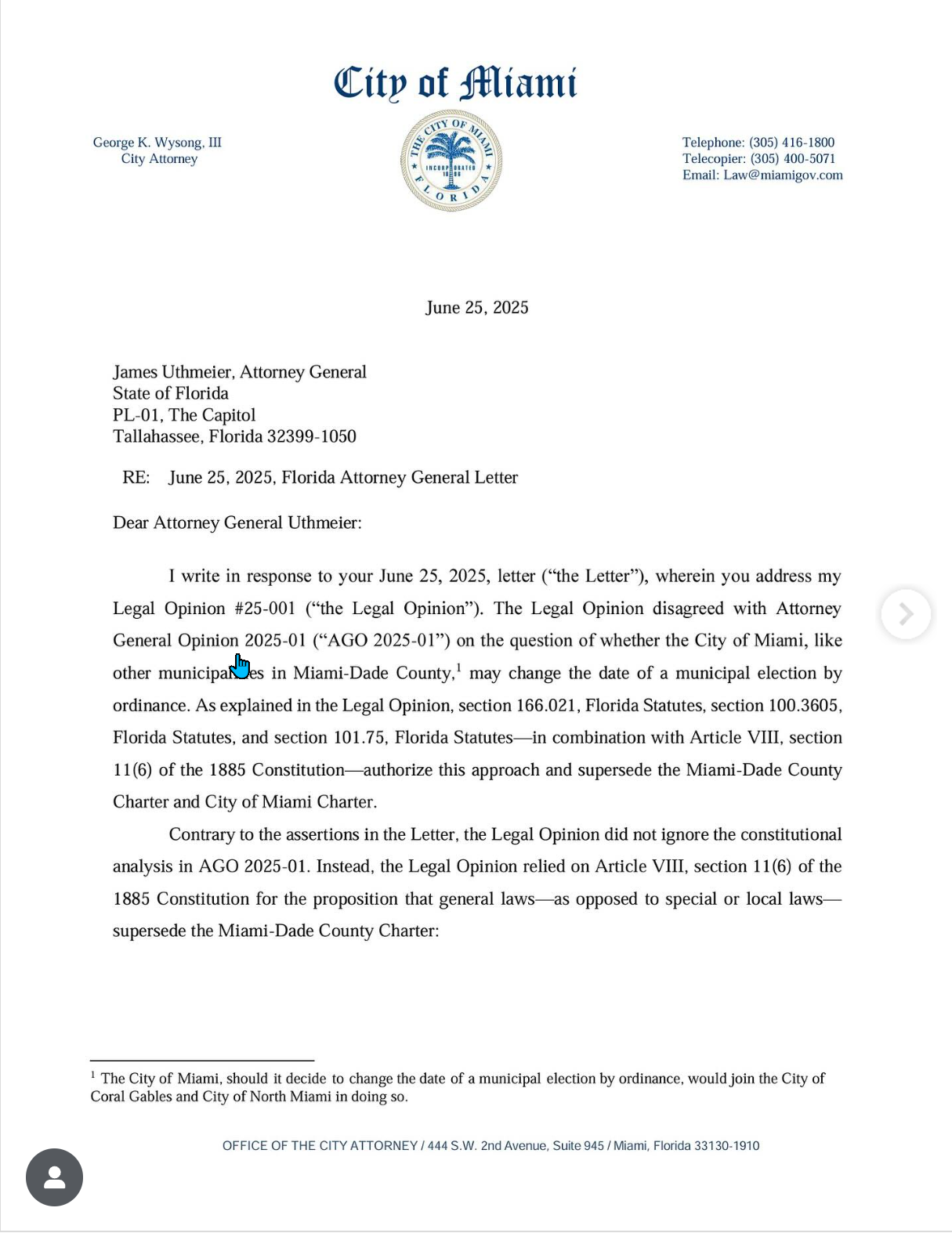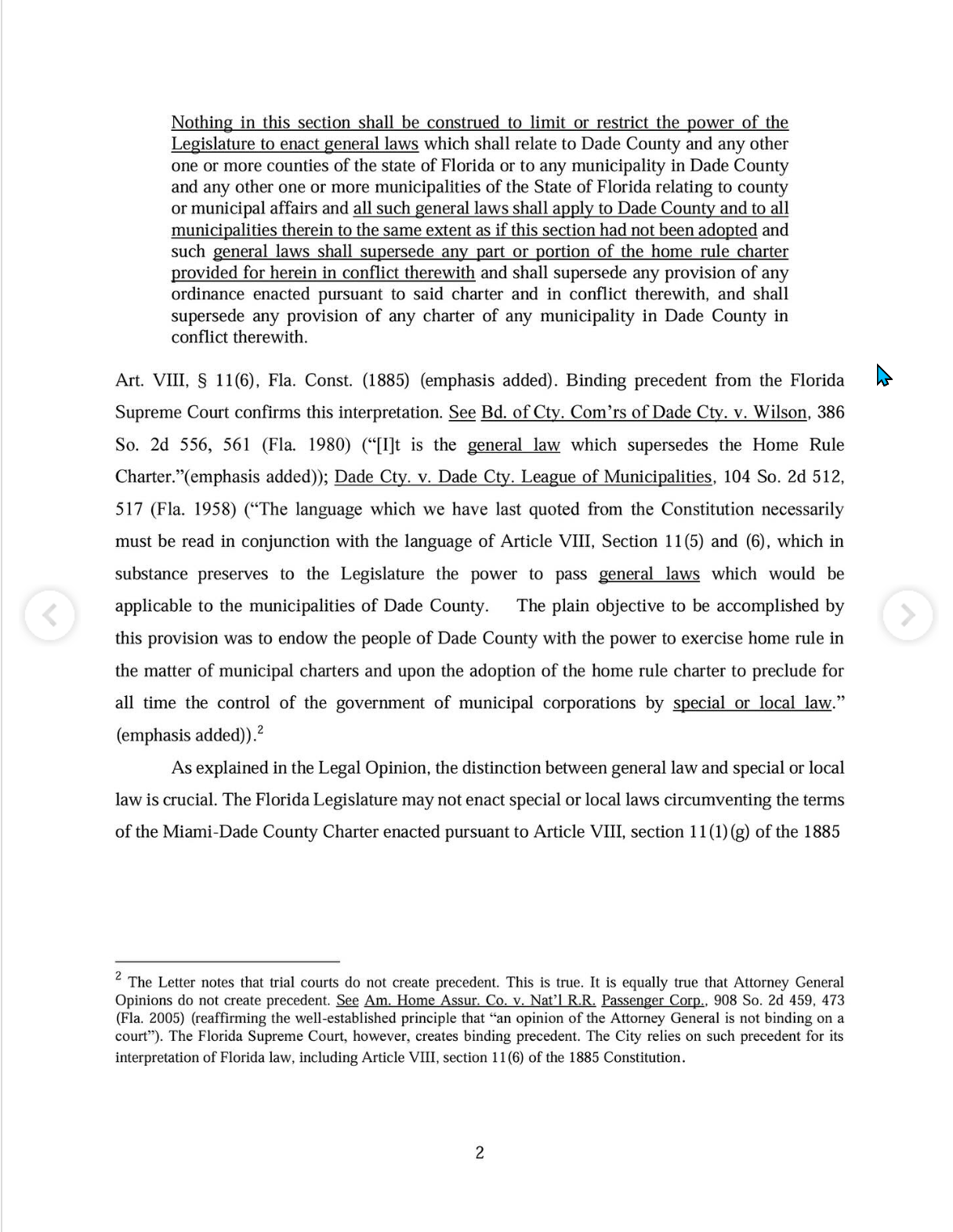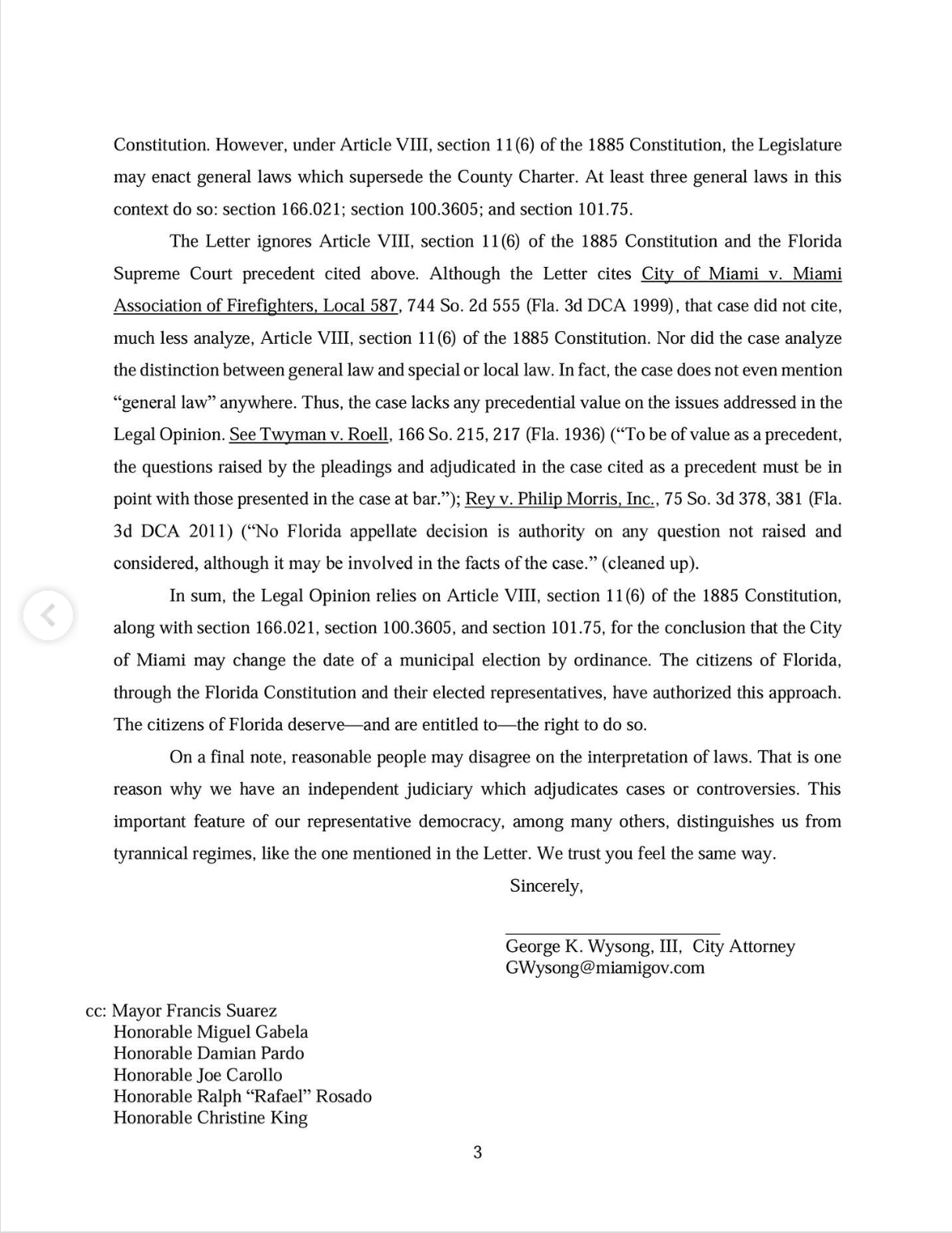|
Getting your Trinity Audio player ready... |
Tabla de Contenido/ Table of Contents
- 1 Miami Election Postponement: A Legal – Political and Democratic Analysis. The Legal Conflict: Constitution or Expediency? Participation or Manipulation?
Miami Election Postponement: A Legal – Political and Democratic Analysis. The Legal Conflict: Constitution or Expediency? Participation or Manipulation?
The decision to postpone Miami’s municipal elections, originally scheduled for November 2025 and moved to November 2026, has sparked significant controversy. Approved by a 3-2 vote in the Miami City Commission, this measure has ignited debates about its legality, political motivations, and effects on local democracy. Below, we present a detailed analysis based on reliable reports and a critical examination of the context.
3-2 Vote in the Miami City Commission
In favor (3): Damian Pardo, Ralph Rosado, and Christine King.
Against (2): Joe Carollo and Miguel Angel Gabela.
Curiously, Joe Carollo, who voted against the measure, also benefits from the extension of his term until 2026. His opposition may stem from concerns about the measure’s legality.
Legally fragile: Wysong’s defense does not withstand scrutiny against the constitutional arguments of DeSantis and Uthmeier.
Politically corrupt: The measure benefits an elite that prioritizes remaining in power over the interests of citizens.
Ethically questionable: García and other officials normalize electoral manipulation under the pretext of efficiency.
Miami faces a critical challenge: restoring the legitimacy of its democratic institutions. To achieve this, the following actions are proposed:
Citizen action: Press for audits of commissioners who supported the measure before the Miami-Dade Ethics Commission.
Strategic litigation: Support lawsuits by candidates to have the courts declare the postponement unconstitutional.
Media pressure: Expose the links between García and Republican Party donors who may be influencing her stance.
In words that resonate in this context: “When governments fear elections, they suppress them; when they fear the people, they suppress freedoms.” Miami is at a crossroads where citizen and judicial action will be key to reversing this democratic setback.
Miami Election Postponement and Its Legal and Political Impact
⚖️ 1. Legal Conflict: Constitution vs. Expediency
Ron DeSantis’s Position: “Miami politicians have no authority to cancel elections and extend their terms without voter approval.”
Constitutional Basis: DeSantis and Attorney General James Uthmeier cite the 1885 Florida Charter (incorporated into Article VIII, Section 6 of the 1968 Constitution), which requires referendums for changes in the terms of elected officials. Uthmeier warned in writing that the measure violates these principles and threatened state legal action.
Miami’s Argument (George Wysong): “Reasonable people can disagree on legal interpretations… that differentiates us from tyrannical regimes like Cuba.”
Weak Defense: Wysong invokes a North Miami precedent, but omits that the case involved a referendum. His comparison to “tyrannies” is rhetorical to discredit criticism, not legal support.

Consequences:
Risk of Invalidation: Courts could strike down the extension as unconstitutional, creating power vacuums.
Additional Cost: Protracted litigation would drain public funds (the $1 million “savings” would be called into question).
🎭 2. Political Dynamics: Power vs. Representativeness
Francis Suárez (Mayor of Miami): “Miami should not hold elections with low turnout… it’s costly, outdated, and generates unrepresentative results.”
Self-benefit: Suárez avoids elections in 2025, when he would face a recall election due to corruption scandals. His argument of “higher turnout” (65% vs. 15%) ignores the fact that the low turnout is due to institutional distrust, not the calendar.
Alina García (Election Supervisor):
Ethical paradox: Although he promotes “transparent” processes, he endorses a maneuver that:
Annuls scheduled elections (2025), contradicting his duty to guarantee periodic voting.
Blames voters: Her phrase “it’s a bigger reason to vote” shifts criticism toward the public, absolving politicians of their responsibility.
Partisan affiliation: As a Republican, she aligns her position with Suárez (GOP), exposing bias in a position that should be neutral.
🗳️ 3. Democratic Impact: Participation vs. Manipulation
- False Solution to Abstention:
- Postponing elections does not address the root causes of low participation (misinformation, mistrust). Real Solution: Civic education and access to voting by mail (García promotes the latter, but does not address the underlying causes).
- Irony: Extending mandates without voting is undemocratic; it contradicts the principle of “greater participation” that Suárez claims to defend.
- Citizen Disempowerment:
- The measure invalidates the efforts of opposition candidates, who were already investing in campaigns for 2025.
- It creates a dangerous precedent: Other municipalities could copy the tactic to avoid competitive elections.
💎 Conclusion: A Crisis of Legitimacy
The election postponement in Miami reflects an institutional cancer:
- Legally fragile: Wysong’s defense is superficial in the face of Uthmeier/DeSantis’ constitutional arguments.
- Politically corrupt: It benefits an elite that prioritizes interests over representation.
- Ethically questionable: García, instead of oversight, normalizes electoral manipulation with technical language (“savings,” “efficiency”).
Key Recommendations:
- 💡 Citizen Action: Demand that the Miami-Dade Ethics Commission audit pro-extension commissioners.
- ⚖️ Strategic Litigation: Support lawsuits by candidates to force rulings that overturn the measure.
“When governments fear elections, they suppress them; when they fear the people, they suppress freedoms. Miami faces both evils.” — Final Analysis.
📰 Want more news like this?
Visit our homepage to stay up-to-date on the latest happenings in South Florida and more:
📰 Stay informed with the latest news!
Would you like to receive more information like this directly on your screen? 🌟 Visit our homepage and find out everything happening in South Florida: local news, events, politics, business, and much more.
Don’t miss a single detail. #MiamiDade #News #Florida











